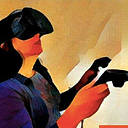Promoting Inclusion through Technology Education
Social enterprise Kizcode helps young girls access opportunities through coding
“Learning to code opened up a whole new world of possibilities for me. It was like learning a new language. All of a sudden things start to make sense and I began to grasp the inner workings of digital technology and its importance in our everyday lives.”
Growing up in Eastern Turkey, Mujde Esin’s school only had the most basic facilities, and even after moving to Istanbul for secondary school, she only had access to rudimentary technology. She still remembers the name of that lecturer (Bager Akbay). Coding was a revelation to Mujde, sparking the curiosity to learn more and the confidence to look at the possibilities in the wider world. She improved her English and was eventually awarded a scholarship to do her Masters Degree in the UK.
“Coding gave me the confidence to broaden my horizons”
“I wanted other women like myself to have access to these wonderful opportunities. Nothing has a bigger impact in a person’s life than education, but women, especially those from ethnic backgrounds like my own, face many obstacles in obtaining access to education. I thought I could play a part in changing that.”
Mujde founded KizCode in 2015, a social enterprise dedicated to teaching coding to young women from ethnic minority groups.
“Initially we’re targeting tens of thousands of Kurdish and Turkish girls from underprivileged communities, both born in the UK and in Turkey,” she explains. “Learning happens in a fun and safe environment, but it’s incredibly empowering for future women entrepreneurs, who can reach a wider market and more effectively supplement their marketplace-based activities. Coding in this case can be the catalyst to their independence, both financial and intellectual.”
Learning to code can be incredibly empowering for future female entrepreneurs
“Digital technology is changing or replacing conventional teaching equipment and techniques. This ranges from replacing blackboards with interactive ones to being able to interact with your tutor in virtual environments, and in the future all aspects of education will be pervaded by technology in some way or another, and this effect will ripple out into wider society. I believe the next generation will be one of makers, we see children already starting to create their own devices instead of relying on readymade ones. I think giving them the confidence to know how things work and make new ones is the most important thing we can teach them about technology.”
All aspects of education will be influenced by some form of technology in future, so we need to enable the next generation to deal with that
Mujde is a huge fan of other projects that try and close the technology gender gap, such as Code First; Girls, Women Who Code, Stemettes and Girls Who Code, but she also sees the need to specifically engage with ethnic communities, who have different and additional barriers to entry when it comes to accessing technology and education. KizCode received its first funding from a major tech and logistic company in Turkey, and are now looking at partnerships that can help them expand. With the government recently announcing a £20 million fund to help integrate Muslim women into British Society through a better English Language learning provision, it seems that initiatives such as these should also be encouraged and supported by all sides.
Closing the technology gender gap should be a priority for all governments
“I believe that technology education has the power to transform our society, not only helping to close the gender and skills gap, but to bring all these diverse communities that currently feel excluded. By offering them positive and tangible alternatives we’re empowering them to make a positive contribution to society, and to benefit from the digital economy. Everybody wins.”
By offering these girls positive and tangible opportunities, we’re involving people who might otherwise have felt marginalised and excluded into the broader digital economy
Check out EdTech Trends for the latest Education Technology stories

